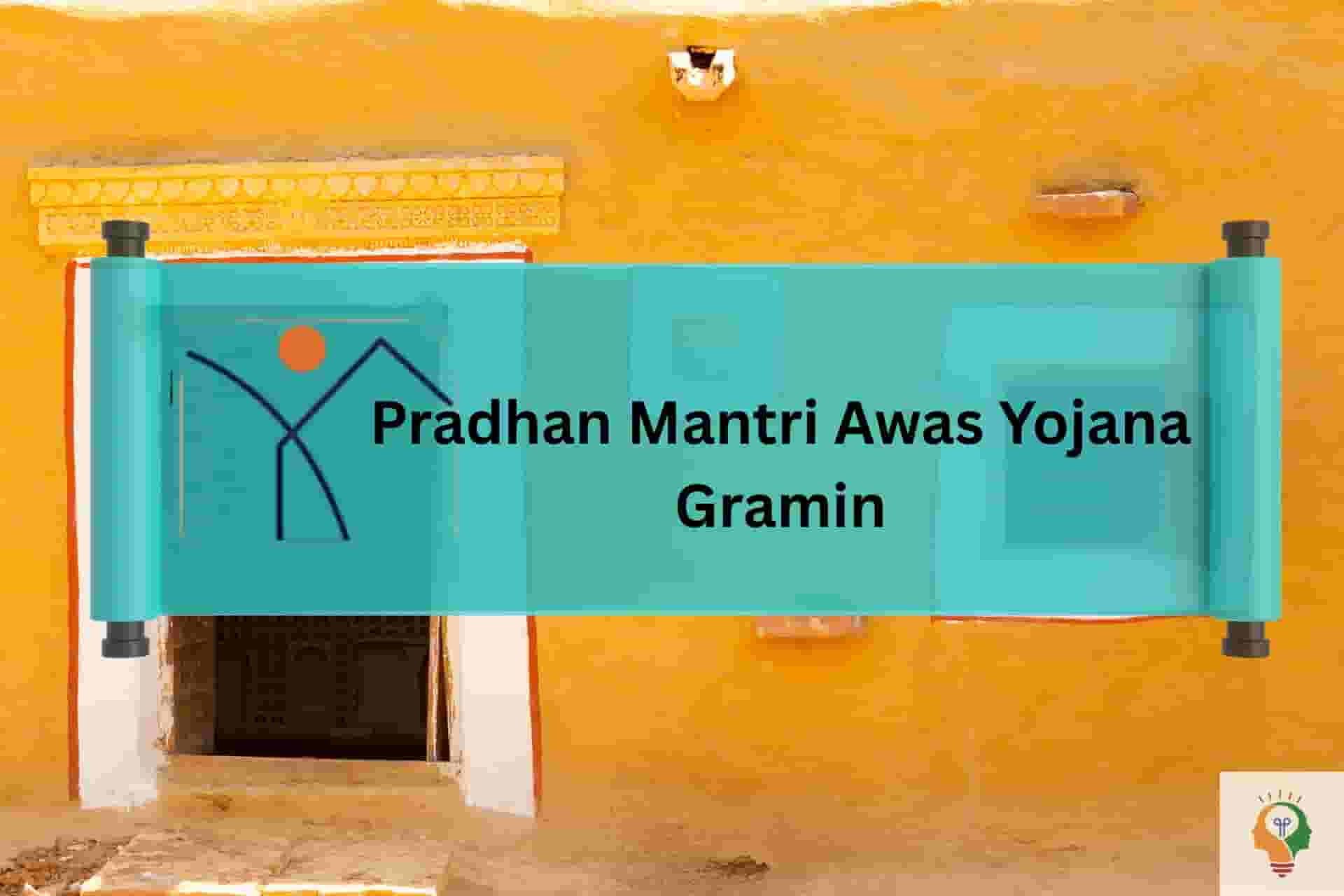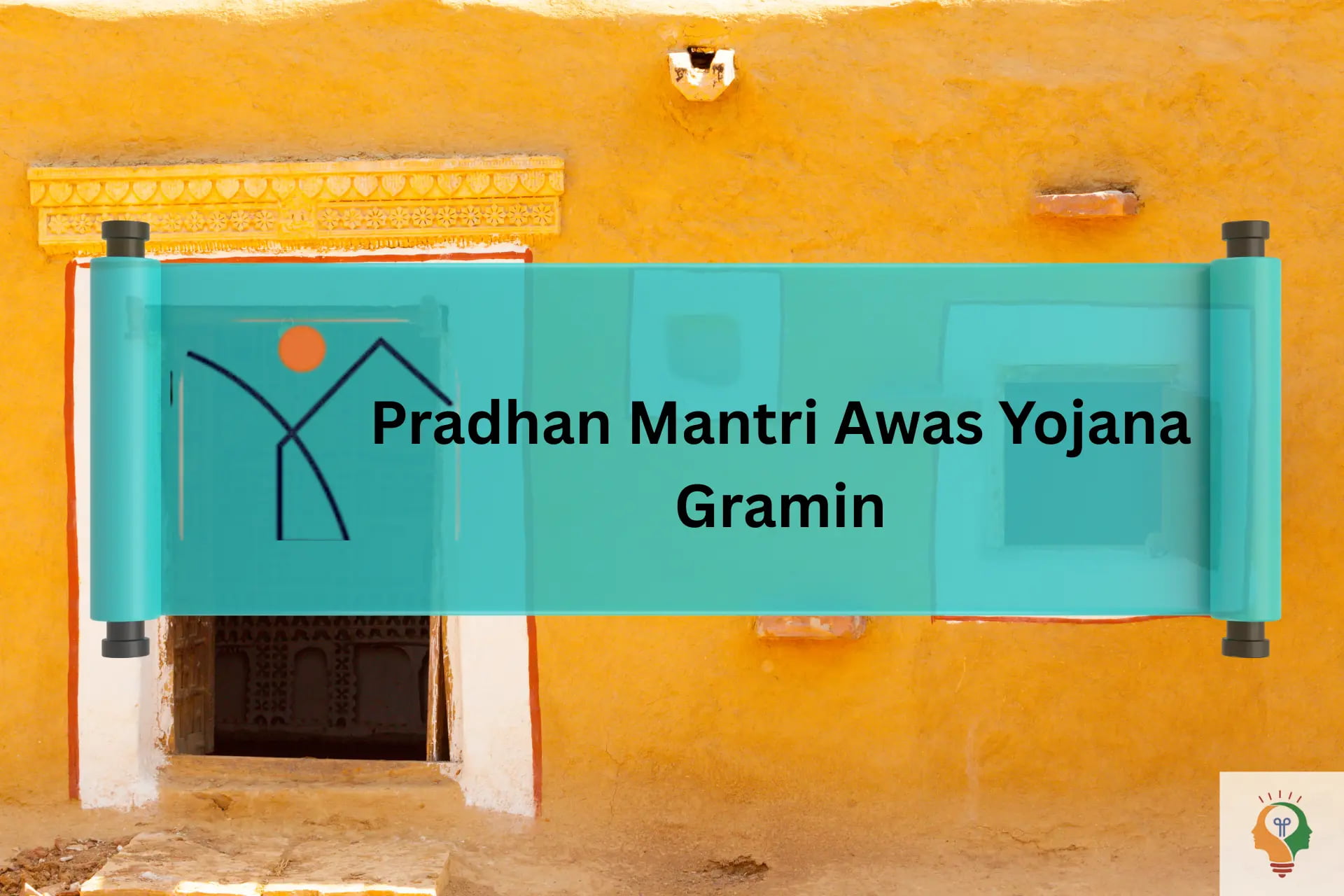PMAYG - Pradhan Mantri Awas Yojana Gramin | Affordable Rural Housing
Updated: 13-10-2025 at 3:30 PM
2k


India has always been a heavily populous country. With the inflow of refugees from neighbouring unstable countries and the ever-growing population, poverty and homelessness are prevalent issues in India. The provision and construction of houses for the poor have always been a focus of government welfare schemes.
The present Pradhan Mantri Awas Yojana-Gramin, a renewed version of the Indira Awas Yojana, is providing shelter to thousands of people across India. Let us learn in-depth about this.
Read More: Swarojgar Credit Card
Overview
The below table showcases the key highlights of the Pradhan Mantri Awas Yojana-Gramin
| Scheme | Key Highlights |
|---|---|
| Name | Pradhan Mantri Awas Yojana-Gramin (PMAY-G) |
| Launch Date | April 1, 2016 |
| Previous Name | Indira Awas Yojana (launched in 1985) |
| Target | Construction of 2.95 crore houses by March 2024 |
| Achievement (as of now) | More than 2.5 crore houses constructed |
| Financial Assistance | ₹1.20 lakh per house in plains, ₹1.30 lakh per house in hilly regions/UTs (90:10 funding ratio for hilly areas, 60:40 for plains) |
| Additional Assistance | ₹12,000 for toilet construction (SBM-G), Employment under MGNREGA for 100 days of unskilled labour (₹90.95 per day) |
What Is Pradhan Mantri Awas Yojana-Gramin?
The Pradhan Mantri Awas Yojana-Gramin (PMAYG) was launched on April 1, 2016. It is a social welfare scheme launched to provide shelter to the poor in rural areas across India. The houses allotted under this govt scheme are given in the name of women usually or they are co-jointly owned by husband and wife.
The PMAY rural was previously known as the Indira Awas Yojana and was launched in 1985. It was renamed as the PMAYG yojana in 2016. The scheme is a convergence between other government schemes such as the Swacch Bharat Abhiyan, Ujjwala Yojana and Saubhagya Yojana.
The houses provided under the scheme are equipped with basic amenities such as toilets, electricity and LPG connections to facilitate ease of living for the people. It aims to provide financial assistance to the financially weaker as well as scheduled castes and tribes of Indian rural areas to construct houses. The government has also provided educational schemes for the SCs and STs to empower them by the name of the SHREYAS scheme.
The scheme targeted the construction of 2.95 Crore houses by March 2024 and so far, more than 2.5 Crore houses have been constructed with financial assistance under the government scheme.
Read More: PM Awas Yojana
Features Of The Awas Yojana-Gramin
PM Awas Yojana Gramin provides affordable housing to low-income groups by offering financial assistance for constructing or upgrading homes in rural areas. The PMAY rural scheme also emphasizes eco-friendly materials and techniques to ensure sustainable and durable housing for beneficiaries.
PMAY Gramin Scheme for Low-Income Groups has the following features:
-
Cost Sharing: The financing of the housing is a partnership between the Central Government and the State Government. For non-hilly states, the ratio is 60:40, with an average of one lakh twenty thousand per house.
-
Hilly States & UTs: Per house, the parameters are set at ₹ 1.30 lakh in hilly regions where the ratio is 90:10. For UTs (excluding J&K), the total cost is borne by the Central Government.
-
Permanent Housing: The scheme converts Kacha houses into pucca houses improving the living standards of the poor in rural areas.
-
Toilet Construction: Another ₹12,000 is given per beneficiary for the construction of toilets for the Swachh Bharat Mission Gramin (SBM-G).
-
Unskilled Labour Wages: Through MGNREGS agriculture labourers are to be paid ₹90.95 per day with unskilled no.
-
Selection Process: It is centred on the SECC and approved by the gram sabha, though the selection of beneficiaries happens through a list.
-
Transparency: All disbursements are done to the beneficiary bank accounts, the use of Aadhaar is also done here.
Read More: NITI Aayog
Objectives Of The Gramin Awas Yojana
The Pradhan Mantri Awas Yojana-Gramin (PMAY-G) seeks to extend credit link subsidies to the economically weaker section to meet their requirements to construct a dwelling unit with certain amenities such as electricity, LPG roads etc. The programme envisions the construction of Pucca houses of a minimum of 25 square metres under the housing for all plans.
What Are The Benefits Of The Awas Yojana-Gramin?
The PM Awas Yojna Scheme is a social welfare-based, beneficial scheme for the rural poor that assists them in building houses with government aid. Let us look at its benefits in depth:
-
Financial Assistance: Monetary assistance amounting to those living in plains is available up to Rs 1,20,000 per unit and up to Rs 1,30,000 for those in hilly areas.
-
Employment Assistance: Provision of employment under the MGNREGA scheme for 100 days is to be mandatorily provided to those seeking employment as well as benefits under this scheme to help them financially. The entitlements under MGNREGA are also relevant.
-
Institutional Loan: An institutional finance or loan can be sought for an amount up to Rs 70,000 at a meagre interest rate of 3%. The maximum amount against which a subsidy can be sought is Rs 2,00,000.
-
Sanitation Facilities: Toilets are built in these houses as a measure of promoting sanitation in convergence with Swachh Bharat Abhiyan.
-
Gas Connection: LPG Gas facility is provided in convergence with Ujjwala Yojana in furtherance of the provision of basic amenities.
-
Cooking Space: The house shall have a designated space for a kitchen/cooking space of 25 square metres.
-
Direct Payment: Assistance is provided directly by deposits in the post office or bank accounts of those who have their AADHARs linked.
What Is The Eligibility Criteria Of The Gramin Awas Yojana?
The eligibility criteria for the PMAYG Scheme applying to get a ‘pucca’ house under this scheme are as follows:
-
Household without shelter
-
Manual Scavengers
-
Primitive Tribal Groups
-
Destitute/Insolvent/Living on alms.
-
Legally released bonded labour.
The allotment is done based on the calculation of scores within groups. The following parameters are given consideration, each with an equal weightage:
-
Households with no adult members aged between 16 to 59 years.
-
Female-headed households with no adult male members aged between 16 to 59.
-
Households with no literate adult above 25 years of age.
-
Households with any disabled member and no able-bodied adult member
-
Landless Households derive the major part of their income from manual casual labour
-
Households with higher deprivation scores will be ranked higher within the subgroups.
People Excluded From The Scheme
Individuals who cannot apply for the scheme are laid down below for one's clarity and better understanding:
-
Households with pucca houses have pucca roofs, and those living in houses with more than two rooms.
-
Owning Motorised two/three/four wheeler/ fishing boat
-
Owning Mechanised three/four-wheeler agricultural equipment
-
Having a Kisan Credit Card with a credit limit of Rs.50,000 or above
-
Household with any member as a Government employee
-
Households with non-agricultural enterprises registered with the Government
-
Any member of the family earning more than Rs.10,000 per month
-
Paying income tax
-
Paying professional tax
-
Own a refrigerator
-
Own a landline phone
-
Own 2.5 acres or more of irrigated land with at least one irrigation equipment
-
5 acres or more of irrigated land for two or more crop seasons
-
Owning at least 7.5 acres of land or more with at least one irrigation equipment.
How To Apply For The PM Awas Yojana Gramin?
The PMAY-G scheme provides financial assistance to economically weaker sections to build pucca houses with basic amenities. The funding is shared between the Central and State Governments, ensuring transparency through direct bank transfers.
The application process for PM Awas Yojana Gramin through the pmayg nic in gramin portal is as follows:
Step 1: To begin the Gramin Awas online process, fill in the details required in the personal details section (such as gender, mobile number, Aadhaar number, etc.) on the pmayg nic in online apply website.
Step 2: Upload the consent form required to use the Aadhaar number through the pmayg nic in portal.
Step 3: Click on the search button to find the beneficiary name, PMAY ID, and priority.
Step 4: Click on ‘‘Select to Register’’.
Step 5: The beneficiary details will be automatically generated and displayed on the pmayg nic in portal.
Step 6: Add the beneficiary account details in the required fields, such as beneficiary name, bank account number, etc.
Step 7: If the beneficiary wants to avail of a loan, select ‘‘Yes’’ and enter the required loan amount.
Step 8: In the next section, enter the MGNREGA job card number and the Swachh Bharat Mission (SBM) number of the beneficiary.
Read More: Major Financial & Policy Changes From October 1st, 2024!
What Are The Documents Required For The Awas Yojana Gramin?
To apply for Awas Yojana Gramin, you need documents like an Aadhaar card, proof of income, bank account details, land ownership records, and an NREGA-registered job card if applicable. These documents help verify eligibility and ensure the applicant qualifies for benefits.
List of List of documents needed for PMAY-G application:
-
Aadhaar Card: A Self-attested copy of Aadhaar. Where the applicant is illiterate, he or she must sign a consent letter and provide a thumbprint.
-
Job Card: Resident of rural area having MGNREGA job card properly enrolled.
-
Bank Details: Original and copy of bank account.
-
Swachh Bharat Mission (SBM) Number: Provide the SBM number.
-
Affidavit: Declaration by the applicant and/or family members they do not own a pucca house in their name.
Application Status Check
To check the status of one’s PMAY-G application status you should follow these steps:
-
Regarding the information, PMAY-G has its official website about the scheme.
-
After going into Awaassoft, select FTO Tracking from the options provided on the Application Menu.
-
Please include your Fund Transfer Order number (FTO) or your Public Finance Management System (PFMS) username to assess your application.
Pradhan Mantri Awas-Gramin Beneficiary List
You can check the beneficiary list of the Pradhan Mantri Awas Yojana-Gramin (PMAY-G) by following this link
Read More: Jal Jeevan Mission UP
Conclusion
The PMAYG scheme seeks to address the concern of housing shortages in rural India and has so far been successful in its implementation. Social well-being and bridging the social gap are being undertaken by this scheme. The government scheme promotes an equitable and social welfare-driven approach.
Stay updated with Jaagruk Bharat to get the latest information on government schemes and more, and reach out to us via our community page if you have any questions or you wanna share your thoughts.
Frequently Asked Questions
0
0
2k
0
0
2k Views
0
No comments available





Our Company
Home
About
T&C
Privacy Policy
Eula
Disclaimer Policy
Code of Ethics
Contact Us
Careers
Cancellation & Refund Policy
Categories
Women
Insurance
Finance
Tax
Travel
Transport & Infrastructure
Food
Entertainment
Communication
Government ID Cards
E-commerce
Traffic guidelines
Miscellaneous
Housing and Sanitation
Sports
Startup
Environment and Safety
Education
Agriculture
Social cause
Employment
Disclaimer: Jaagruk Bharat is a private organization offering support for documentation and government scheme access. We are not affiliated with any government body. Official services are available on respective government portals. Our goal is to make processes easier and more accessible for citizens.
All Copyrights are reserved by Jaagruk Bharat